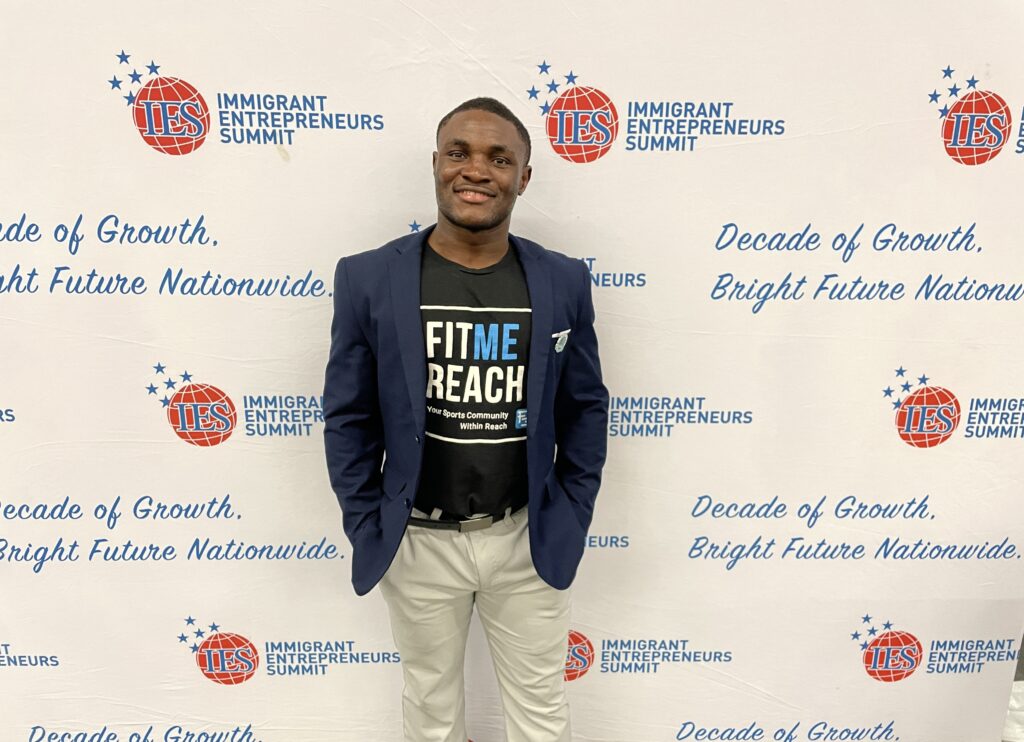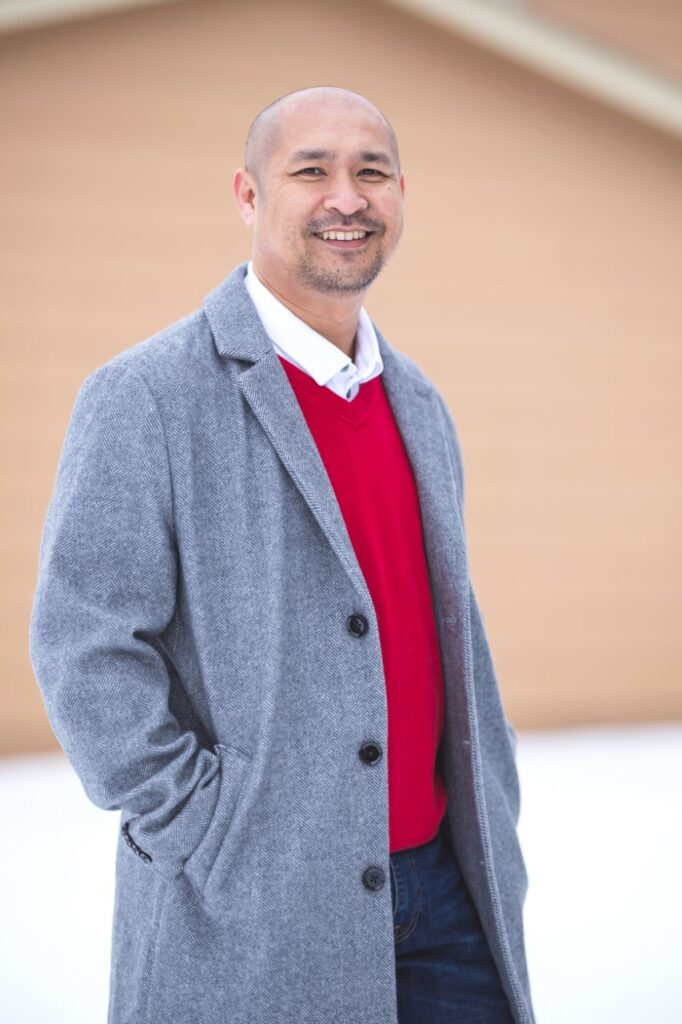A conversation with two immigrant business owners
From the first Immigrant Entrepreneurs Summit held in 2008 on Drake University’s campus to this year’s event marking 15 years of the volunteer-run event, the organization has widened its reach to a growing immigrant business community.
Leaders have grown the summit to unite more immigrant entrepreneurs primarily from Iowa and the Midwest and provided educational events for the region throughout the year.
IES Executive Director Catherine Tran, who joined the organization in 2019, said the event was born out of conversations among a core group of community and business leaders, including Ying Sa of Community CPA and Juan Rodriguez of Diversity Insurance.
The group recognized the support immigrant business owners needed to learn how to run a business in the U.S. Tran said the event is focused on empowerment as well as education.
“A lot of immigrant communities tend to stay and work with their own community,” Tran said. “So how do we strengthen and grow those businesses from beyond their immediate community, so that it can generate more wealth for themselves and for the community to really empower them and their families and create that generational wealth? It was through those types of conversations that the Immigrant Entrepreneurs Summit started.”
IES tailors the summit’s topics each year to current needs, but Tran said marketing and access to capital are two constant needs among the small businesses IES supports.
Tran said immigrant-owned businesses have been interested in a range of early-stage capital sources from grants and loans to angel investors and pitch competitions. There are a variety of grants available, she said, but competition for the grants and short timelines to apply can be barriers for business owners.
No matter the funding source, Tran said new small businesses are generally less competitive when they go to seek capital to develop their business. Some businesses have started to pursue microloans, such as ones the Kiva Iowa program provides, while also trying to navigate the traditional loan process.
Two Des Moines-based organizations were honored with awards at the 2022 summit on Nov. 19: Genesis Youth Foundation, led by Sam and Tricia Gabriel, and Cart Construction, led by Viri and Carlos Ramirez.
The conversation below is with FitMeReach founder Dady Mansaray, who won this year’s IES pitch competition, and Min Tun, owner of international grocery store Golden Lands Food Market in Des Moines. Tun received the Outstanding Immigrant Business Award at the 2021 summit.
This Q&A has been lightly edited for clarity and length.

Tell me about your business and why you started it.
Dady Mansaray: The concept started back in 2017. This was when I was a transfer student and I came to the University of Iowa, trying to reconnect with people I have known, especially for sports and activities. I realized this was time-consuming and difficult, and talking to other students I learned that this was a problem. But not coming from a tech background, I didn’t know how to go about solving problems so I tried using platforms like Facebook, Meetup, even dating apps in some cases to try to find people, not only with similar [sports] interests, but people at my skill level. Overall, I learned that those platforms are not designed for things like that. It was January 2021 when I decided to go full time. This past winter I learned about a program in Iowa City called the Builders + Backers Idea Accelerator program. Once I applied, I got the email saying I was accepted and things just started falling into place. Currently, roughly 70% of my users are monthly active users, so I started looking for other ways to raise capital. With the traction I have created, I needed more capital to try to get things rolling so I started applying for different programs. That’s how I also learned about the Immigrant Entrepreneurs Summit. Creating this application, it’s an opportunity not only to solve a problem for me, but to also help others that are facing similar challenges. Being able to have that community that we can call upon whenever, no matter where we are, is my vision for the platform, no matter your network or your location you’re able to connect with your sports community. in ways never thought possible.

Min Tun: I was in the United States in 2007. I’m a refugee status, and I came from Malaysia, so I’ve been here in Des Moines since 2007. So as long as we are the first generation from the Burmese people in Des Moines, Iowa. I’m the first generation here. When we came here, there were only seven people in our community. I worked at another job at Keystone Electric. Then after one or two years, the Burmese population was growing. I found some Asian grocery stores, but also our community is growing, and the people demanded our culture of food and our tradition of food, so that’s why I thought that I wanted to be a small business owner. I researched and learned, and in 2010 I opened the Golden Land grocery store on Douglas.
What kind of capital have you sought out for your business, and what has been your experience accessing it?
Tun: When you start a small business, it’s really hard to gain capital. It’s not easy to get a loan when you start a business. All the small businesses don’t have enough capital, most of it comes from the business owner. We try working hard, and then it’s not easy to get a loan from the bank. We have to prove that our business is strong, has strong profits. If the bank and the community, if we can work together, that would be a lot of help to small business owners. When I started, we tried to approach the bank, but we didn’t get the loan for two or three times. After five years I got a loan and then I expanded my business to a bigger location.
Mansaray: I’ve been trying to access capital and it’s been challenging overall in Iowa. I think having some infrastructure in place and having a network it has become much easier. Before, I didn’t really have that support and it was hard. I was doing a lot of pitch competitions mainly because I didn’t really want to lose equity. Plus, I didn’t really have the credibility even though I had the knowledge, the expertise and the experience. I think now that I’ve been creating some traction, and I have some support in the community that is starting to change. The capital I’m looking for right now are more in the route of nondiluted funding like pitch competitions, or even VC funding. But in that route, I’m more interested in getting a certain amount because if I’m going to be given a percentage of my business, I want to make sure that I have enough capital in place to be able to create something so we can grow fast. Mainly right now I’m looking at grants and community opportunities to be able to raise some funds so I can continue testing.
What supports would you like to see for entrepreneurs in the Des Moines community?
Tun: I’ve been in business for about 10 years already, but I had never heard of IES. Catherine called me last year to say that I got the IES business award. I was really surprised. That award, it gave me a lot of motivation and it also was a reminder that I’m not alone; our community in Iowa is always behind us. When I got the award I saw a lot of different communities, different leaders and that’s a lot of help to a small business owner. Without the network, you cannot grow your business. IES is working to give a lot of small business owners knowledge and training and classes so you can learn a lot from them.
Mansaray: Being able to help small business owners that are needing help when it comes to loans and creating opportunities for them to receive grant opportunities. I’m not really familiar with many opportunities in Iowa that award grants to small business owners, especially small business owners of color that are trying to grow. Typically for me, I have to look out of state for these different opportunities. I don’t really hear about many opportunities like grants or pitch competitions often and the only time I really had that network was when I was part of the University of Iowa’s Founders Club and the state awarded the school about $175,000 to invest in the startup ecosystem affiliated with the university.
What does success look like for you and your business?
Tun: I’m not saying I’m a successful business person right now, but I started a business so I can take care of my community. I can help them, I can share my knowledge and then I can support my community. That’s why I do it. Every two years I do some community events. I try to support the soccer tournament. That’s the way I try to help in the community.
Mansaray: Piggybacking on what Min said, it’s about creating value for your community. For me, the community I’m trying to create value for is the sports community, more targeted toward college students right now. Giving them the opportunity to be able to find what they’re looking for without the hassles, to me, that’s success, even if they’re just on the platform one time. For me, I don’t want to be a founder or owner of a business that is disconnected from the people I’m trying to solve the problem for. I want to be engaged with them because I can learn a lot more being on the ground.
What is the biggest challenge you are currently facing as a business owner?
Mansaray: One of the biggest challenges I’ve had is the capital aspects, but I think also being able to bootstrap has allowed me to think more strategically, and really hone down to see “OK, how can I do this or how can I do that?” But also having the network because with a network I can create credibility. When you have that network of people or have mentors, they can open doors. That’s honestly what I learned when I was a part of the Builders + Backers program, that the moment I mentioned that to a number of people that I had previously reach out to me, doors were opening. People were paying attention to me. So yes, capital is big, but also having that network that can open doors for you because, for me, I just need that opportunity to talk to this person, to share my vision with them and I can take it from there, but getting in the door many times can be very hard.
Tun: Business-wise, right now my biggest challenge is inflation. As a grocery store, every time we order stuff the price is changing all the time so the market prices go higher. We tried to fix that problem but we face customers every day. They come in and say, “Why did the price go up?” But I cannot control the price because inflation is squeezing all the small businesses. Another [challenge] is workers. We have to find the workers.